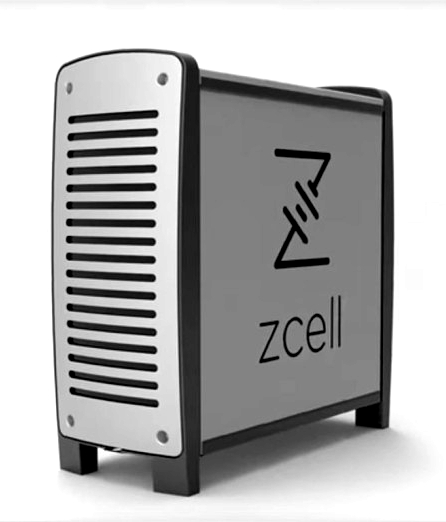Local busts into battery game
 A new company is entering the Australia’s home solar storage market.
A new company is entering the Australia’s home solar storage market.
Home storage will be the big new growth area in consumer renewables, as people look to get more from their power and government reduce the benefits of selling it back to the grid.
Electronic giants including Tesla and Panasonic have systems on the way, and now a new Brisbane company called Redflow is ready to join the fray.
With about 8,000 tonnes of lithium-ion batteries from home solar systems being thrown away every year, there should be plenty of room for the new players to fit in.
Redflow’s battery is designed to hold about 10kWh of electricity - enough to keep most homes running for a day or two.
The company says its ZCell battery does not use lithium and is more recyclable than its competitors.
“The active parts are plastic, aluminium and steel, the fluid electrolyte can be removed and cleaned and put in the next battery so the whole thing is very recyclable,” executive chairman Simon Hackett told ABC reporters.
“It's a very effective high capacity battery. It's about the size of a bar-fridge on its side and it goes outside an external wall of your house.”
Generous government rebates for feeding power being back into grid supplies are ending now that solar is threatening fossil-fuel power generation.
The next will be NSW, where around 146,000 solar-powered households will see their feed-in tariff drop from as high as 60c/kWh to just under 5c/kWh.
But cutting subsidies means demand for home batteries has soared.
This creates a new issue, according to chief of the Australian Battery Recycling Initiative (ABRI), Helen Lewis.
She says batteries sold today have a life span of just 10 years, meaning that not long from now, the amount of depleted battery materials in Austrlaia could skyrocket.
The ABRI and is calling for the Government to accelerate plans for a battery recycling scheme.
“We don't have any regulations that require recycling of batteries at the moment. We'd like to see that come into force sometime over the next few years,” Dr Lewis told reporters.
“We certainly don't want to see batteries sitting on the kerb like we saw for TVs and computers a few years ago.”








 Print
Print